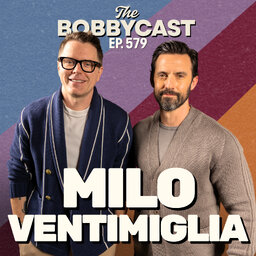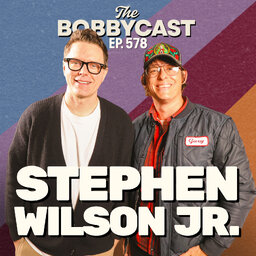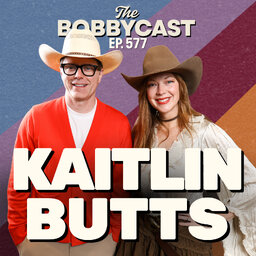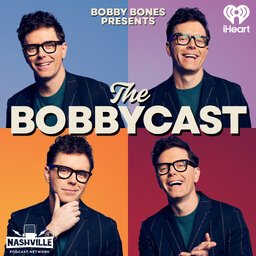#515 - Montel Williams on Why He Joined the Military + Origin of His Talk Show + How He Started a Trend on His Talk Show Before TikTok + Bobby Gets Interviews About What He Wants His Legacy to Be
On this BobbyCast, Bobby talks to Montel Williams who is best known as the host of the Emmy-nominated daytime talk show, The Montel Williams Show. It ran for 17 years (1991–2008) and aired over 4,000 episodes, making it one of the longest-running daytime talk shows in TV history. He currently hosts Military Makeover with Montel and Military Makeover Operation Career on Lifetime. He talks about how his 22 years in the military led to him starting his talk show. Montel’s new book, The Sailing of the Intrepid: The Incredible Wartime Voyage of the Navy’s Iconic Aircraft Carrier is out now. Bobby then gets the tables turned on him as Julia Pelham who is a student at Chapman University interviews him! She talks to Bobby about his daily routine, what his favorite part of doing the radio show is, how he really ended up on Dancing with the Stars and what he wants his legacy to be.
Follow on Instagram: @TheBobbyCast
Follow on TikTok: @TheBobbyCast
Watch this Episode on Youtube
In 1 playlist(s)
Bobbycast
Bobby Bones hosts the biggest names in country music, pop culture and more from his studio in Nashvi…Social links
Follow podcast
Recent clips

#579 - Milo Ventimiglia on His First Big Yes, Gilmore Girls & This Is Us
1:12:00

#578 - Stephen Wilson Jr. on Going from Scientist to Musician and Turning Tragedy Into Art
1:08:02

#577 - Kaitlin Butts on “You Ain’t Gotta Die” Going Viral + Stage Vulnerability
1:04:11
 Bobbycast
Bobbycast